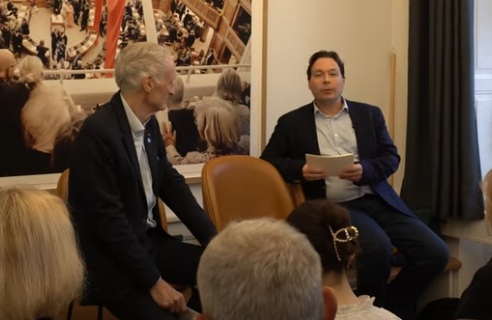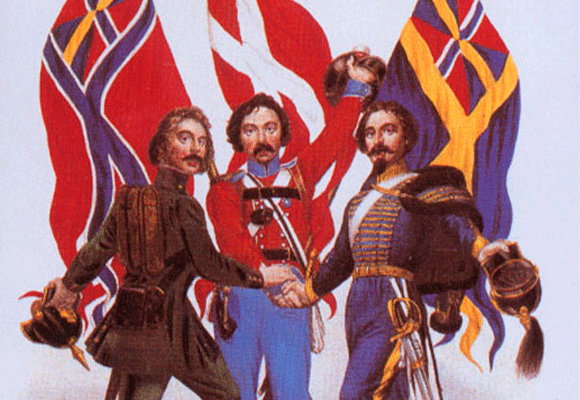
Historian: The Nordic region must now unite on security and defense
There is much to learn from history about how, in an uncertain world, we can secure a strong security alliance in the Nordic region. We have, after all, tried it before—without success and with fatal consequences for Denmark.
Professor of History and fellow at the Nordic Humanities Center, Rasmus Glenthøj, is in no doubt: many aspects of today’s geopolitical situation resemble the mid-19th century, offering hard-earned lessons worth revisiting.
- It’s a good parallel, because in the 19th century there was also a rules-based world order, which collapsed in connection with the Crimean War (1853–1856)—when the Western powers, France and Britain, were at war with Russia in Ukraine, says Rasmus Glenthøj, and continues:
- That meant war and chaos, and essentially we are experiencing the same thing right now, he says.
A Scandinavian Union
With fears of Russian expansion in the Nordic region, serious plans were at that time, according to Glenthøj, drawn up for Denmark, Norway, and Sweden to enter into a union. Initially a defense union, it was intended to develop into a political union. One of the driving forces behind the plan was Oscar I, a remarkably strong king of Sweden and Norway.
Defense cooperation in the Nordic region – this time it must succeed

Watch a video with Professor Rasmus Glenthøj, who, in conversation with former minister Bertel Haarder, takes a closer look at security policy in the Nordic region.
”In many ways, some of the plans from that time are unfolding in the situation we face today.
- In many ways, some of the plans from that time are unfolding in the situation we face today, says Rasmus Glenthøj, who, in collaboration with Norwegian historian Morten Nordhagen Ottosen, has written the book "Union eller Undergang" (Union or Ruin) about the years 1814–1870, in which they examine, among other things, why the political Scandinavism of the time failed. Because it did.
- The price for not having established fixed and ratified agreements back then was paid by Denmark in 1864, when Prussia declared war. At that time, no soldiers came from Sweden or Norway to provide assistance, Glenthøj adds.
- "Back then, in the name of national independence, the necessary steps to secure the cooperation in time were not taken," he says.
Large-scale war in Europe
Today, Europe and the Nordic region are once again facing a historical security crisis. In February, the Danish Defence Intelligence Service issued a threat assessment summarizing that Russia could be ready for large-scale war on the European continent in about five years—if NATO does not increase its military capabilities at the same pace. One of the Danish government’s clear responses to this scenario is a commitment to close cooperation within NATO and among the Nordic countries on security and defense.

- What they once did not take seriously, they are taking very seriously now. And why? Because the world is dangerous again, says Glenthøj, pointing to the billion-kroner order for armored personnel carriers that the Danish military placed with the Finnish manufacturer Patria in April.
New opportunities
- Today, with Sweden and Finland now members of NATO, new opportunities have emerged. We purchase from each other, conduct joint military exercises, and develop coordinated plans in case of an attack. In practice, we are moving toward a unified Nordic defense, and with the knowledge we have from history, there is a clear need for it, says Rasmus Glenthøj, who in early May received just over 6 million DKK from the Danish National Research Foundation for the project “The Crimean War and Scandinavia.”
From February 2026 and for the following three years, there will be an even greater focus on how the Nordic countries previously sought to navigate a time when international systems were undergoing significant political and ideological change.